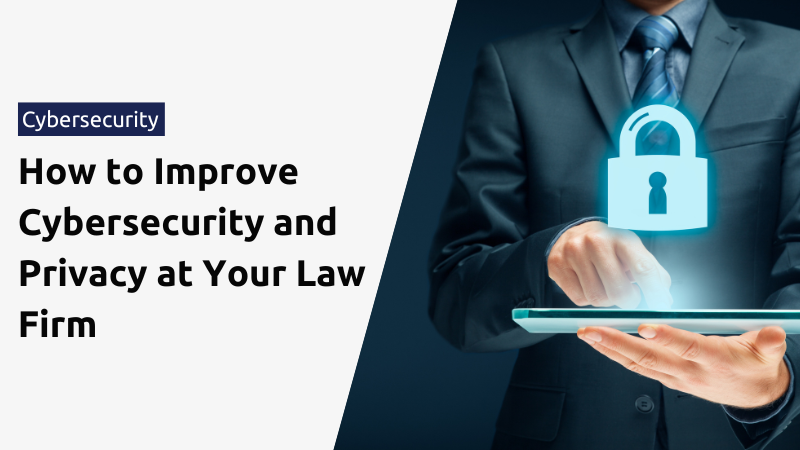Your law firm is a gold mine for hackers.
As cybercriminals, hackers look to steal as much data as possible in the shortest amount of time possible. So what better target is there for them than law firms?
With access to your systems, they can potentially steal confidential information from you — including your firm’s corporate data and even privileged information from your clients.
To help you address this concern, here are some for improving law firm’s cybersecurity and privacy:
INSIDE THIS ARTICLE
1. Increase your cyber threat awareness
How can you defend against something you don’t know exists? To protect the privacy of confidential information at your law firm from cyber attacks, you need to be aware of the threats that are out there.
As secure as your cybersecurity system may be right now, this may no longer be the case a week, a month, or a year from now. You’re never “secure enough.” Hackers are becoming increasingly intelligent in the way they bypass security systems, and it’s all the more reason why your security and awareness have to evolve continuously over time.
You may already have a few favorite resources for security but here are a couple of national resources you should also explore:
- Cybersecurity and Infrastructure Security Agency (CISA)
- Canadian Centre for Cyber Security (Cyber Centre)
2. Improve your security culture
You’re aware of the importance of security but your colleagues may not be as educated on the matter.
Even if you’re responsible for the security at your law firm, it’s not a one-person job to protect an entire firm. Rather, a strong cybersecurity and privacy culture comes from the joint effort of all employees at the firm.
While not intentional, many security and privacy breaches actually result from the actions of employees. A great way to reduce the likeliness of internal breaches is to create more security awareness by forming a security culture in the workplace.
Be transparent with your colleagues about the threats that are out there, how to prevent them, and what will happen if they don’t.
Related | Confidential Information Leaks and Your Employees
3. Increase your security budget
Your current security budget may not be enough to satisfy the cybersecurity needs of your law firm. If this is the case, it’s time to increase the budget to bridge this gap because not spending enough could potentially cost you more.
If you become a victim of a data breach, you’ll face significant fines and other penalties — which include legal fees, compliance fines and not to mention a damaged reputation, a loss of existing clients, and trouble acquiring future clients for your law firm. In IBM’s Cost of a Data Breach Report for 2018, the global average cost of a data breach in 2018 was 3.86 million dollars which went up by a rate of 6% from the previous year.
Spend the cost of security so you don’t have to spend on a breach.
Related | 10 Statistics that Prove Why Companies Need to Invest in Cybersecurity.
4. Practice secure file sharing
One of the biggest threats to your law firm’s cybersecurity is file sharing. During the many stages of litigation, legal professionals and support staff at your firm will have to exchange privileged information with clients, colleagues, law clerks, co-counsel, and opposing counsel.
You can’t rely on email or other consumer-grade file-sharing tools such as Google Drive, Dropbox, or OneDrive to share this information because these solutions are not well-equipped to prevent access to the information if it’s ever stolen. What’s even worse? Sharing confidential files and documents via courier where you can’t be sure that they won’t get lost and fall into the wrong hands.
An enterprise-grade file-sharing solution is what you need. With the right secure file sharing solution, you can encrypt confidential information so that even if your information is stolen, the offender won’t be able to decrypt the data they steal. Your confidential information will remain private.
Before you choose your solution, you must keep in mind the usability of the solution for your lawyers. If the solution is too complex, they won’t use it. A balance of security and usability is what you need.
What is TitanFile?
Attorneys and support staff use the TitanFile platform to securely exchange messages and large and sensitive files with clients, experts, and opposing counsel. TitanFile is as easy to use as email, increasing staff productivity and simplifying client collaboration while improving security and compliance.

